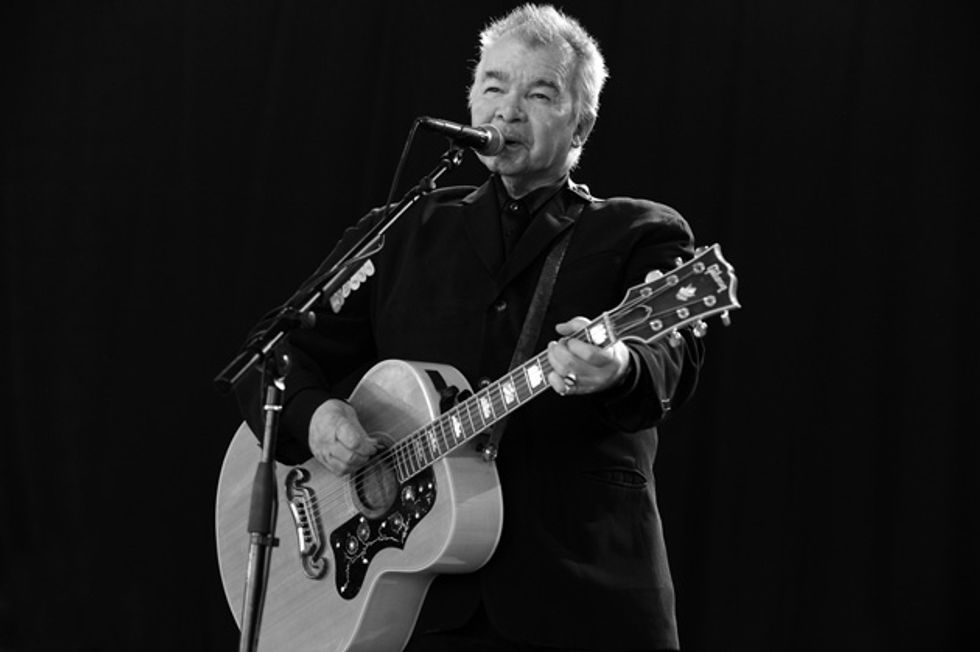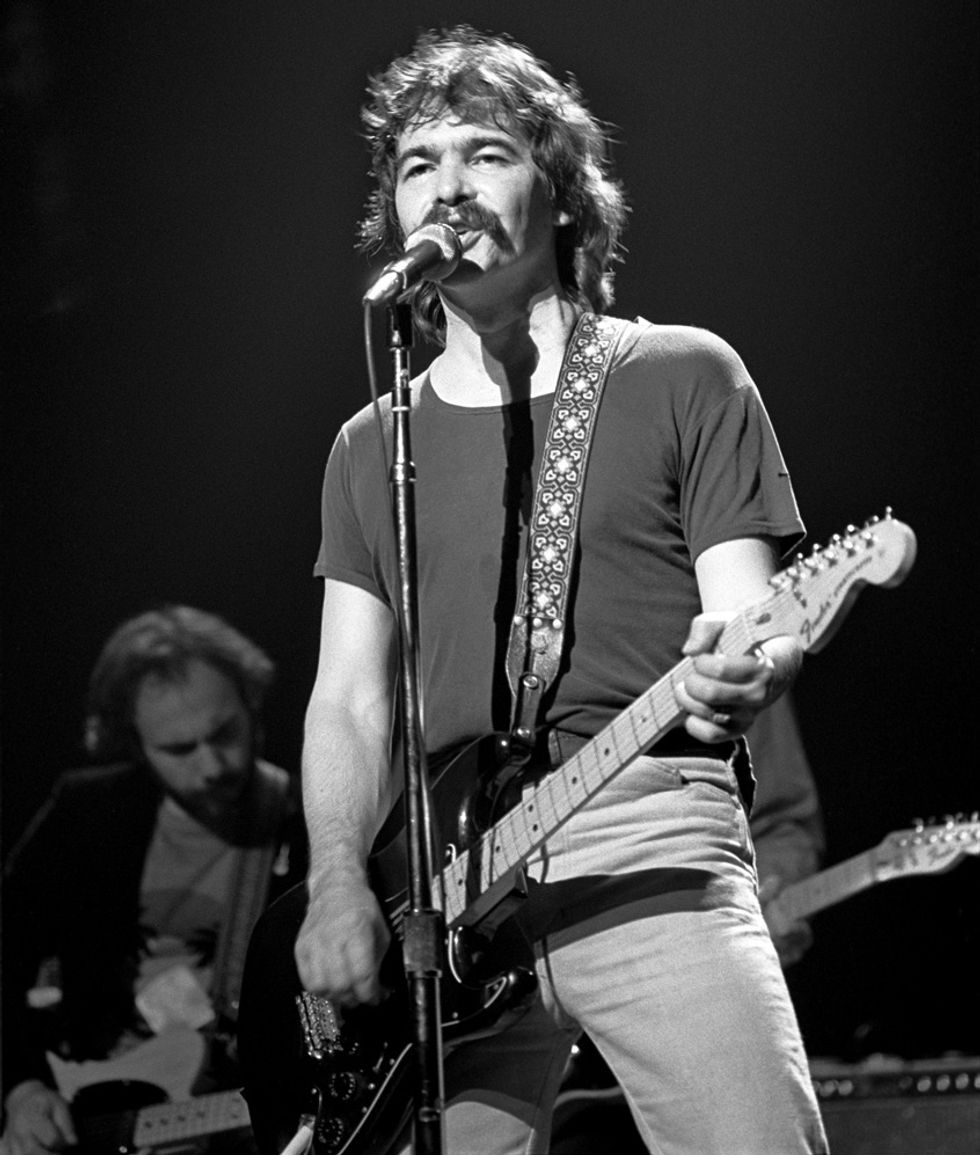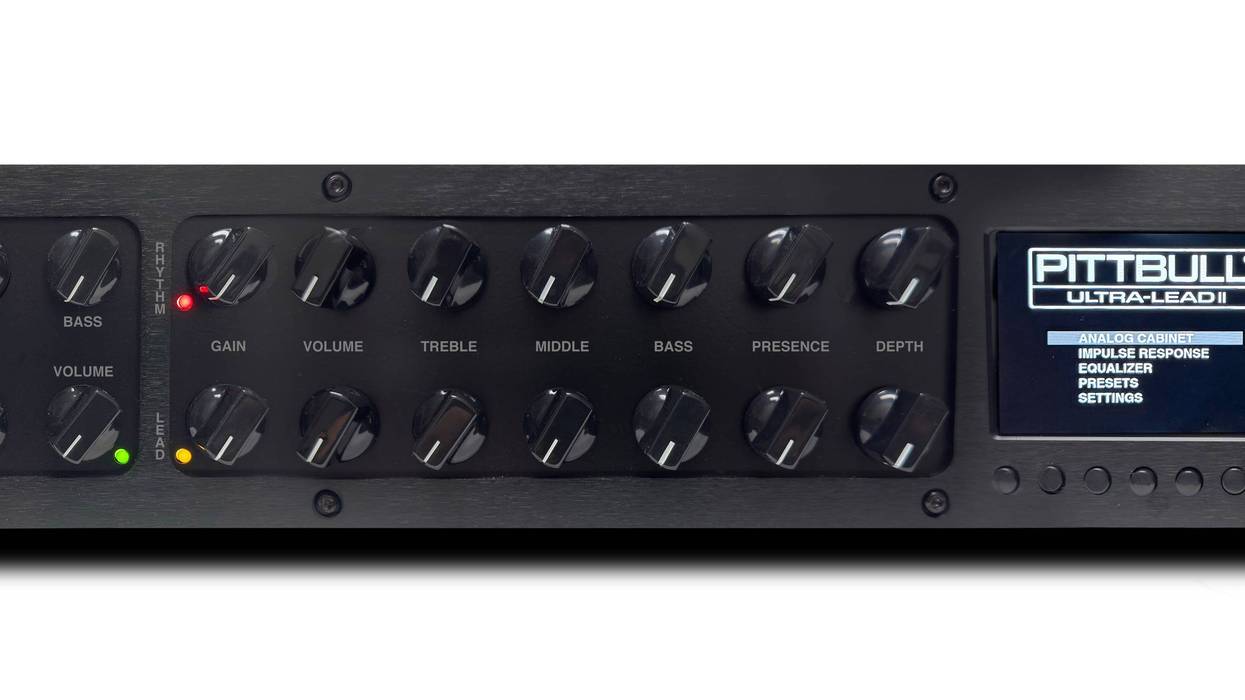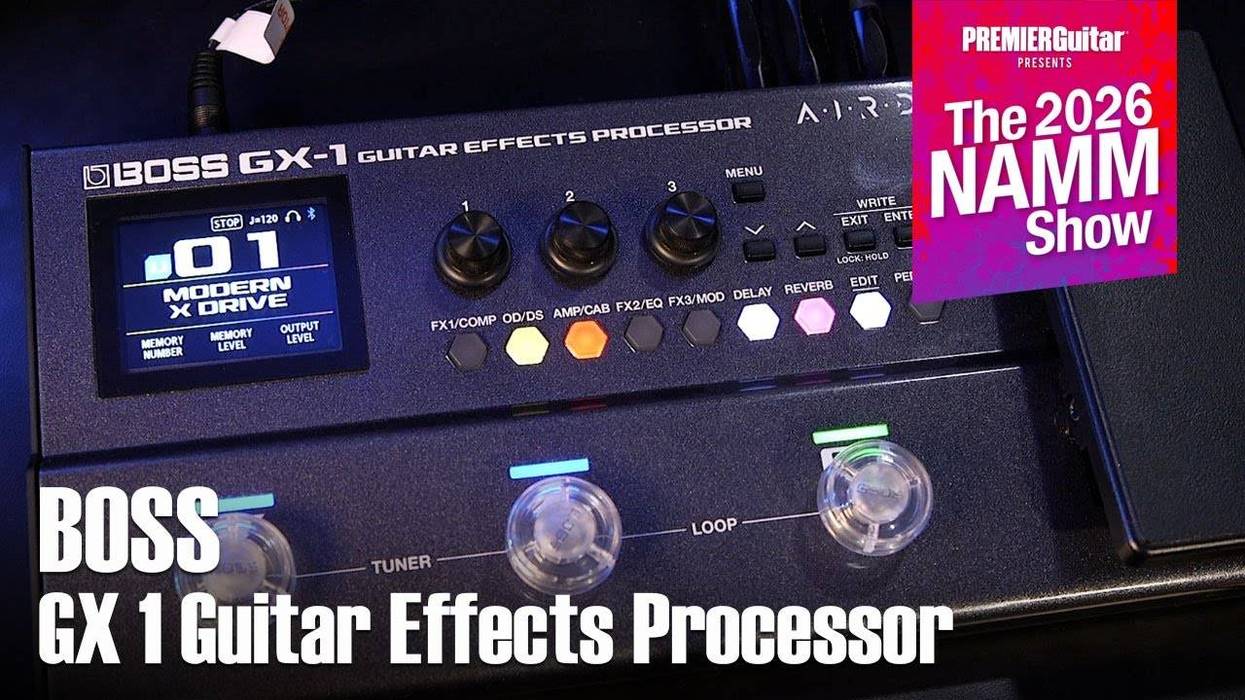One of America’s most revered songwriters, John Prine, lost his life due to the coronavirus on Tuesday, April 7, at age 73, plunging generations of songwriters, performers, and music fans into mourning. Prine, who examined life with humor and humanity in his songs, and—with an acoustic guitar slung over his shoulders—charmed audiences around the world for 50 years, was the recipient of three Grammys, including a Lifetime Achievement Award this year. He also collected six awards from the Americana Music Association, including a Lifetime Achievement Award for Songwriting, and was the first singer-songwriter to read and perform at the Library of Congress, in 2005.
The affable Prine was born in Maywood, Illinois, on October 10, 1946. His parents were both from Muhlenberg, Kentucky, and likely played a role in turning his ear toward the sounds of the South. He started playing guitar at age 14, taking lessons at the famed Old Town School of Folk Music, and developed a style that served him brilliantly throughout his life. It was grounded primarily in a fingerpicking style akin to that of Dave Van Ronk and the Rev. Gary Davis: lilting, dynamic, and a perfect foil for his raspy, laconic vocals, reinforcing the Hemingway-like spare perfection of his evocative lyrics.
Drafted into the Army during the Vietnam years, Prine served in Germany and returned to the Chicago area at the end of his hitch. He quickly became a regular at the open mics at a folk club called the Fifth Peg, on Armitage Avenue, while working by day as a mailman. Kris Kristofferson discovered Prine onstage there in 1970, and a few years later his debut album, John Prine, scored his first Grammy nomination. His songs “Sam Stone,” about a damaged Vietnam vet, and the haunting, soulful “Angel from Montgomery” from that release became instant classics, with the latter recorded by dozens of artists over the decades, including John Denver, Bonnie Raitt, Ben Harper, Susan Tedeschi, Old Crow Medicine Show, and Maren Morris. Bob Dylan—who backed Prine on harmonica at one of his first New York City gigs—declared Prine his favorite songwriter, and in his autobiography Johnny Cash wrote that Prine was among the artists whose work he’d turn to for inspiration.
Prine’s rise paralleled that of early-’70s freeform FM radio, which had an anything-goes aesthetic that welcomed his rich-in-character voice and eclectic arrangements. While anchored by his guitar, they were also wildly diverse—ricocheting from rock to country to bluegrass album by album and sometimes track by track for the first few decades of his career. In the ’70s and early ’80s, his catalog grew to include the songs “Souvenirs,” “Dear Abby,” “Christmas in Prison,” “The Hobo Song,” “Never Even Called Me By My Name,” “Saigon,” and “The 20th Century Is Almost Over.” The latter was written with his friend Steve Goodman (who produced Prine’s 1978 Bruised Orange) and recorded by country music’s first supergroup, the Highwaymen. Prine also worked with producers Steve Cropper and Sam Phillips during those years.
As his stock rose as a songwriter and performer, Prine became disillusioned with record labels and in 1981 established his own Oh Boy Records, ultimately releasing 22 titles of his own (including reissues) plus recordings by Kristofferson, Janis Ian, Donnie Fritts, and Todd Snider, and a Classics series of albums by Willie Nelson, Merle Haggard, Joe Tex, Conway Twitty, and many others.
Prine won his first Grammy for 1991’s The Missing Years, produced by Howie Epstein of Tom Petty’s Heartbreakers. Like many of his albums, its themes were sprawling and unpredictable. The song “Jesus the Missing Years” is an imaginary narrative of the 18 unrecorded years in the life of Christ. “Daddy’s Little Pumpkin” is a joyous, bouncing number fueled by the music of bluesman Mississippi John Hurt. “Picture Show” celebrates Hollywood’s classic era—Prine was a film lover—and “It’s a Big Old Goofy World” was inspired by his mother’s affection for crossword puzzles.
In earlier days, John Prine sometimes played electric guitar onstage with a full band. Here, Prine is performing with a Stratocaster at The Savoy in New York City on June 4, 1981. To his left, Prine's close friend and collaborator Steve Goodman is on guitar. Photo by Ebet Roberts
After Prine beat squamous cell cancer in 1998, his voice deepened and its growl intensified, but that only increased the gravitas of his own performances. By then his catalog of studio albums were a vital source of songs for a very long list of artists in the country, folk, rock, and blues genres—and will remain so. But with few exceptions, his songs always sounded truest when Prine sang them—even at the start, when his world-weathered singing put just the right amount of heart into lyrics like of the famed, tragic couplet from “Sam Stone:” “There’s a hole in daddy’s arm where all the money goes/Jesus Christ died for nuthin’, I suppose.”
Incredibly, Prine could write songs anywhere at any time, and hours spent while driving or in hotel rooms often yielded strong work. His favorite tool for writing was the 1968 Martin D-28 he played throughout his career. But he also confessed a fondness for a range of Gibsons, from J-200s to Hummingbirds, as well as his Guild D-35NT and JF-100, Collings dreadnoughts, and other Martins over the years.
In a 2018 Premier Guitar interview with journalist Bill Murphy, Prine observed: “For me, there’s no rule of thumb when it comes to songwriting. Anything goes. Sometimes it’s the truth or sometimes it’s just a convenient lie that rhymes. And I typically don’t go searching for a song. When the idea comes, sometimes I’ll sit and write the whole thing, and other times it remains an idea for a very long time. But I like to think that I go as deep as the song dictates. I don’t ever decide ahead of time how much or how little I’ll dig. I just keep going until the story has been told.”
In this extraordinary, intimate performance, John Prine plays “Way Back Then” from The Missing Years, backstage at L.A.’s John Anson Ford Theatre in October 2019.



















![Rig Rundown: Russian Circles’ Mike Sullivan [2025]](https://www.premierguitar.com/media-library/youtube.jpg?id=62303631&width=1245&height=700&quality=70&coordinates=0%2C0%2C0%2C0)
















![Rig Rundown: AFI [2025]](https://www.premierguitar.com/media-library/youtube.jpg?id=62064741&width=1245&height=700&quality=70&coordinates=0%2C0%2C0%2C0)











